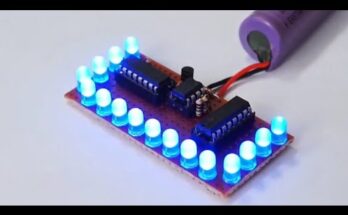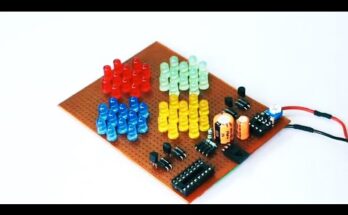Science isn’t just something to learn about in classrooms—it’s an adventure waiting to happen in your own home! This exciting collection, inspired by Inventor 101’s “40 Science Experiments Compilation,” brings you a world of hands-on learning that sparks curiosity, creativity, and imagination. Whether you’re a student, parent, or lifelong learner, these experiments prove that science can be fun, safe, and full of wonder.
1. The Magic of Everyday Materials
You don’t need fancy lab tools to explore the laws of nature. Many of these experiments use simple household items—baking soda, vinegar, food coloring, soap, and balloons—to create dazzling results. Watch as a homemade volcano erupts with colorful fizz, or see a balloon inflate itself using nothing but a chemical reaction. These activities demonstrate key scientific principles like gas expansion and acid-base reactions in a way anyone can understand.
2. Learning Through Play
What makes these experiments truly special is how they turn learning into play. Children can see, touch, and even hear science in action. When they mix colors, build tiny rockets, or create electricity from lemons, they are not just playing—they’re discovering the building blocks of chemistry and physics. Each experiment is a miniature adventure that encourages questions like “Why did that happen?” and “What if I change this?”—the very heart of scientific thinking.
3. Safe and Engaging for All Ages
Parents can feel confident knowing these science activities are designed with safety in mind. With adult supervision, even younger children can enjoy making slime, glowing water, or a rainbow in a glass. Safety goggles and a curious mind are all you need to turn your kitchen or backyard into a mini science lab. These experiments are perfect for family bonding, homeschooling, or weekend fun.
4. Building Curiosity and Creativity
Every successful experiment gives a sense of achievement, but even “failed” experiments teach valuable lessons. They show that mistakes are part of the scientific process and that creativity often comes from trying new things. By encouraging kids to predict outcomes and test ideas, these experiments help develop critical thinking and problem-solving skills—skills that last a lifetime.
5. Science That Inspires the Future
What starts as simple curiosity could grow into a lifelong passion for discovery. Many great scientists began their journeys with experiments just like these—mixing, observing, and imagining new possibilities. The excitement of seeing color-changing liquids, floating paper clips, or homemade rockets can ignite a spark that leads to careers in science, engineering, or innovation.


